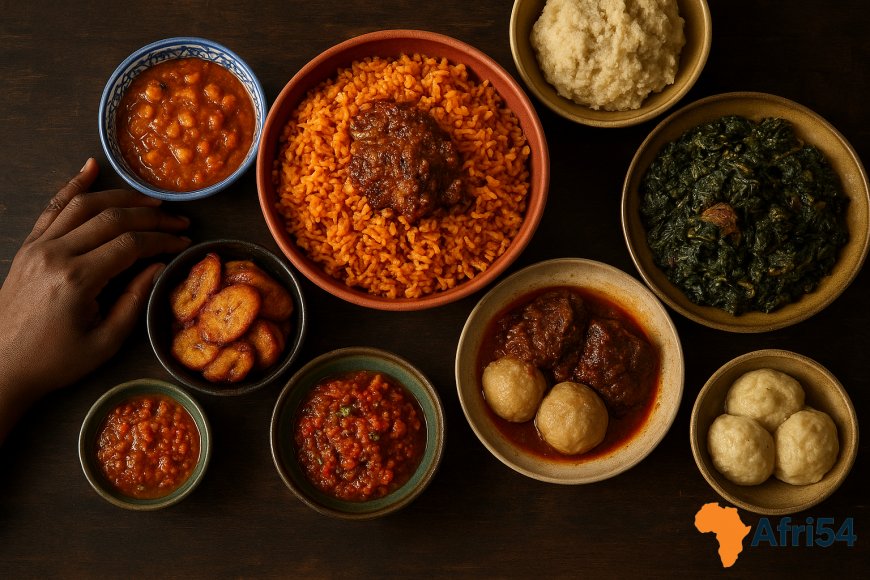Food as Lifestyle: How African Cuisine Shapes Identity and Culture
African cuisine is more than flavor on a plate—it is memory, culture, and identity served in every bite. From traditional stews to street food, every meal reflects centuries of history, resilience, and creativity. To embrace African food is to embrace the lifestyle of community, tradition, and cultural pride.

Food is more than what we eat—it is who we are. In Africa, cuisine is not just about flavors and recipes; it is a living expression of culture, heritage, and community. Every dish carries a story, linking generations, traditions, and identities. From family gatherings to street markets, food remains one of the most powerful ways Africans connect to their roots and express their way of life.
The Story Behind Every Meal
African cuisine is deeply tied to history and geography. Ingredients like yam, maize, cassava, plantain, and sorghum reflect centuries of adaptation to local climates and environments. Each region’s food culture is shaped by the land, the people, and their interactions with trade and migration. For example, North Africa’s couscous reflects Berber traditions, while West Africa’s jollof rice carries the legacy of ancient Senegambian cooking.
Food as Identity
For many Africans, certain meals define who they are. Nigerians identify with jollof rice, Ethiopians with injera, Ghanaians with fufu, and South Africans with braai culture. These dishes are more than sustenance—they are cultural markers. To prepare or share them is to affirm one’s roots, identity, and belonging.
Food and Community
Across Africa, meals are rarely eaten alone. Food is communal, often served in shared bowls or platters. Whether it is a village feast, a wedding banquet, or a simple street-side snack, food creates bonds and fosters unity. Hospitality is also central—guests are honored with the best portions, reinforcing values of generosity and togetherness.
Festivals and Celebrations
Food takes center stage during festivals and cultural events. Think of suya grills smoking on Nigerian streets during holidays, Moroccan tagines simmering during Ramadan, or Kenyan nyama choma at celebrations. These foods not only bring people together but also mark important spiritual and cultural milestones.
African Cuisine Goes Global
In recent years, African food has gained international recognition. Chefs are reimagining traditional recipes with modern twists, and African restaurants are springing up in major cities worldwide. Yet, at the heart of this global wave is the same truth: African food is a lifestyle—an everyday practice that binds identity and culture.
Conclusion
African cuisine is more than flavor on a plate—it is memory, culture, and identity served in every bite. From traditional stews to street food, every meal reflects centuries of history, resilience, and creativity. To embrace African food is to embrace the lifestyle of community, tradition, and cultural pride.
So, the next time you savor African cuisine, remember: you are tasting more than food—you are experiencing culture itself.
Have you listed your business on Afri54?
Afri54 exists to solve a fundamental challenge faced by millions of African businesses: lack of visibility. Whether you're an automobile part seller in Ladipo Lagos, a local attire manufacturer in Kigali, a coffee exporter in Addis Ababa, or a mobile phone supplier in Accra, you deserve to be discovered.
We provide the platform—you bring the value. Get started






















